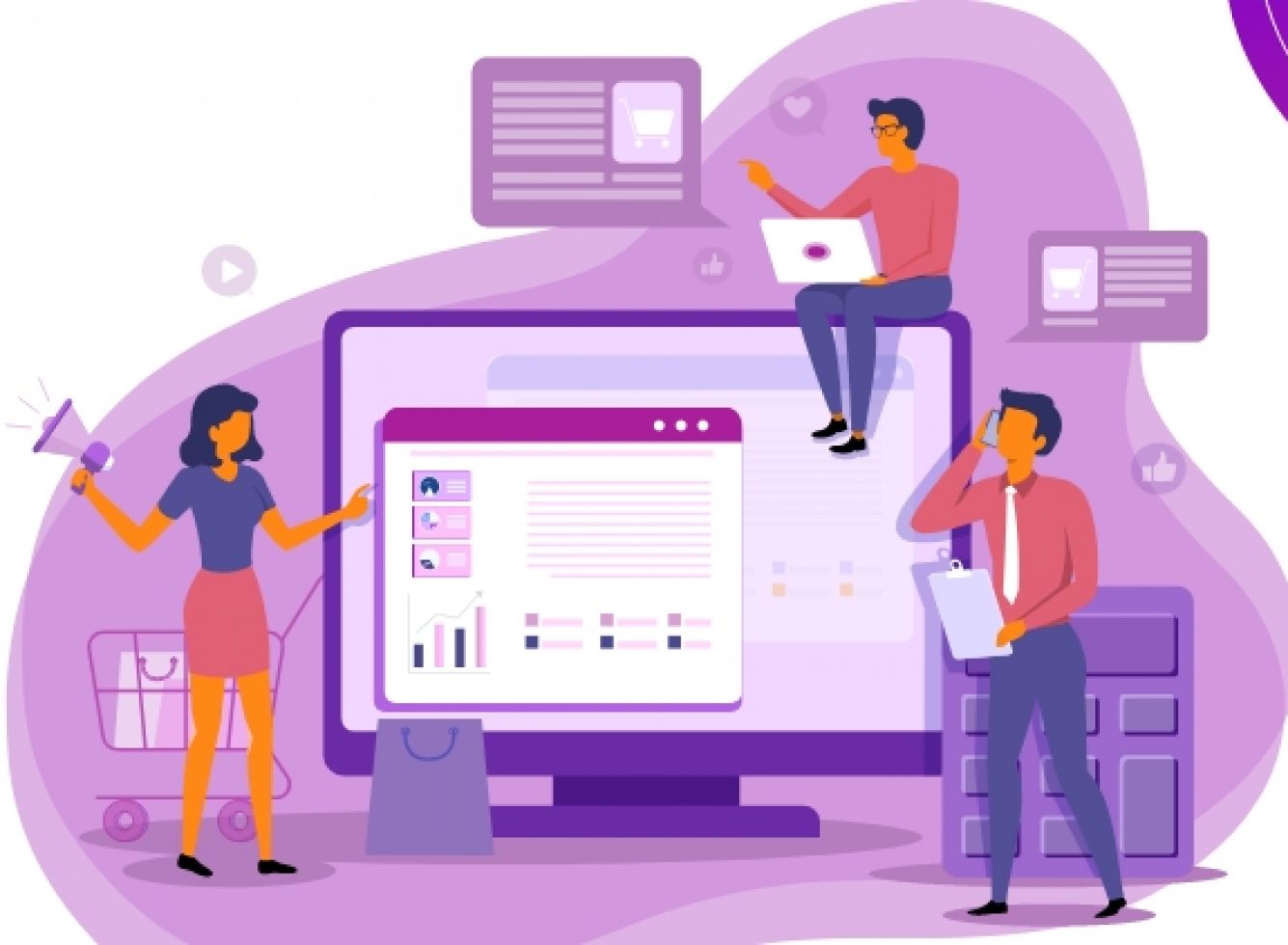‘Market it and They Will Come’ – Why Just Building an Online Presence Isn’t Enough

You have a growing social media presence on the most popular platforms, and you post regular blogs designed to mark you out as an expert in your field. You have done all the hard work, in other words, so now you can just sit back and wait for the new business to roll in.
Except being present is only half the game when it comes to succeeding online.
Digital marketing is the other half. You may have just decided that online marketing is an optional extra and that your online presence is so fantastic that it can sell itself.
The problem with this is that without ongoing digital marketing you won’t reach your customers where they happen to be. Acquiring visitors to your new website is a significant part of making it work. A shop without shoppers is no good, and so it is with the web.
Further, digital marketing will help to create and solidify your brand, create a two-way conversation, and boost your income in return for a relatively small investment.
Quality Traffic
One of the key differences between traditional and online marketing is the degree to which online marketing can be targeted. The amount of data which any online presence creates means that it is possible to create highly targeted content which reaches leads that you can be certain have an interest in your product.
Rather than an advert which reaches a thousand people and interests perhaps 20 of them, you can create a thousand adverts targeted at interested parties. You can target online marketing using metrics such as socio-economic status, demographics, spending habits, hobbies, and interests.
Increased visibility
The more people see your business, the better your chances of reaching those people who need what you are selling. Internet marketing can make sure your marketing content reaches the right places at the right time – putting your proposition in front of the eyes you want to reach. The global, twenty-four seven nature of the internet also means that you are reaching those targeted customers around the clock, should you wish, and wherever they happen to be.
Even when not directly making sales, this kind of contact and exposure helps to build your brand and establishes your presence as a trusted vendor to turn to when the need arises.
Cost Savings
When compared to traditional methods, digital marketing is extremely cost effective. As pointed out above, the targeted nature of online marketing means that every penny you invest can be utilised with as much impact and cut-through as possible. In short, you are crafting messages to send to people who are ready to hear them, which is always going to be a more effective way of spending your marketing budget.
Testing & Data
You do, however, must watch out for more wasteful approaches to your targeting. It can prove all too tempting to spend a little more and go for more reach and before long costs can quickly creep up and the return for every pound spent decline.
Thankfully, the other benefit of digital marketing is that you can test and test again each and every aspect of your campaigns. The data that results will tell you where you have success and where you need to continue to improve. Most often getting the formula right is not an overnight job and can take a number of trial and error loops. Of course, once you have your digital marketing campaigns working optimally you can start to reap the returns.
Digital Marketing Chimes with the Times
Unlike traditional marketing, digital marketing creates a two-way conversation with your customers. Methods such as social media posts, pay-per-click (PPC) ads and online content open the opportunity for people to react directly and reach back to you as a business.
This is the level of communication and contact which members of the digital generation have grown up expecting, and any business which isn’t able to offer this degree of openness will have problems establishing trust. Digital marketing of this kind creates an individual experience for each person it reaches, rather than simply being a means of selling.
What has to be remembered is that the phrase ‘digital marketing’ is an umbrella term which covers a range of methods, tactics and approaches. The first and most important part of any digital marketing campaign involves sitting down and working out which of these methods would be best suited to your sector, business offer and target audience.
The sheer range of marketing platforms and methods available means that the best results can often be achieved by working in close partnership with a digital marketing agency. Their knowledge and experience of internet marketing will combine with your own knowledge of your business and its place in the wider market to create a digital marketing campaign which is perfectly pitched. The following methods could play a valuable role in this campaign:
SEO (Search Engine Optimization)
No matter what kind of business you are involved in, the chances are that new customers will arrive having found you via a Google search. By working to make sure your site is ranked as high as possible on the search results you will increase the amount of qualified traffic driven to your site. Traffic of this kind is also known as ‘organic’ traffic, and SEO can be broken down into different methods:
On-page – a practise of optimising web pages to improve presence in search engine result pages and earn organic traffic. The optimisation part is done by publishing relevant, high-quality content, streamlining on-page SEO factors such as Page Title, Meta Description, headings, interlinking, images, and other technical aspects which refer to optimising the site for crawling and indexing to improve search visibility.
Off-page SEO – the off-page SEO involves improving presence in search engine and user perception of a website’s popularity, relevance, trustworthiness, and authority over the web. This is accomplished by building a presence at reputable places on the web (pages, sites, people, etc.) in an ethical manner viz. building up the brand, publishing quality content, building authority, being an expert voice in the field, etc.
Email Marketing
The death of the email has been predicted time and time again and yet it has proved to be remarkably resilient as a tool for both communication and marketing. Statistics bear this out, with 80% of business professionals stating that email marketing increases customer retention, 59% of customers saying that marketing emails influence their purchasing decisions and 59% of marketers stating that email delivers their biggest return on investment (ROI).
The power of email marketing derives from the degree to which it can be personalised, and the way it can integrate with all other method of digital marketing. For example, an email marketing campaign might include newsletters for a blog subscription, time-specific promotional deals, tips or advice relating to your sector, follow ups to anyone who has made a purchase or downloaded content and a welcome to new customers.
Influencer Marketing
Influencer marketing – utilising popular personalities to promote a brand or product via social media networks – manages to short-circuit the immunity to traditional marketing which many customers have developed. It works as a digital version of word of mouth marketing, building trust in your brand by tapping into the authenticity and established audience of the particular influencer.
Content Marketing
Content marketing involves creating content designed for and sent to a specific audience. The key to effective content marketing is to take the time to research and create in-depth content which will be genuinely useful to the target audience, providing information which they need or answering questions they have. Over time this will create a situation in which you become not just another brand which they might consider purchasing, but an established expert voice in your area and a trusted expert.
Remarketing
The analytic qualities of digital marketing make it possible to track the level of engagement with an ad and, if that level isn’t as high as you’d like it to be you can target specific users with the same marketing tweaked to cut through at the second time of asking. Remarketing of this kind is an example of the personalised and targeted nature of digital marketing, making it massively more effective than pre-digital methods such as print, TV and radio ads.
Too many businesses create their digital content and then expect the quality of that content to do the rest of the job for them. The truth of the matter, however, is that even the best online content in the world is not going to lead to conversions and more business if it does not get seen by sufficient numbers of people. Digital marketing will not only ensure that your varied digital content gets in front of sufficient numbers of people, it will enable you – or the digital marketing agency you engage to do the work – to target exactly the right type of people.
Digitally Market your Brand or Product and They Will Come
Using factors such as age group, spending power, hobbies and interests and purchasing history, digital marketing can micro-target your brand to maximise conversions. You can be certain your main competitors are investing in digital marketing of this kind, and it is a wonderful tool for levelling the playing field between you and large corporations working in the same sector. In simple terms, digital marketing is not the marketing of the future, it is the necessity of today.



